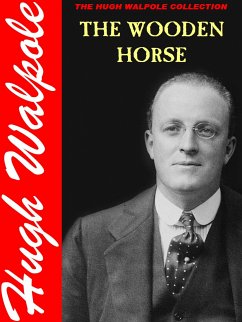A magnificent classic tale of family life at a former age. The wooden horse is the story of the Trojans, a family that calmly accepted the belief that they were people for whom the world was created. But when Harry Troyan returned home twenty years later in New Zealand, with the democracy that he learned by working with his hands, he was a "wooden horse" who boldly carried an army of alien ideals into the walls of Troyan, which made a group of people out of this selfish family, satisfied with themselves.
Dieser Download kann aus rechtlichen Gründen nur mit Rechnungsadresse in A, B, BG, CY, CZ, D, DK, EW, E, FIN, F, GR, HR, H, IRL, I, LT, L, LR, M, NL, PL, P, R, S, SLO, SK ausgeliefert werden.









